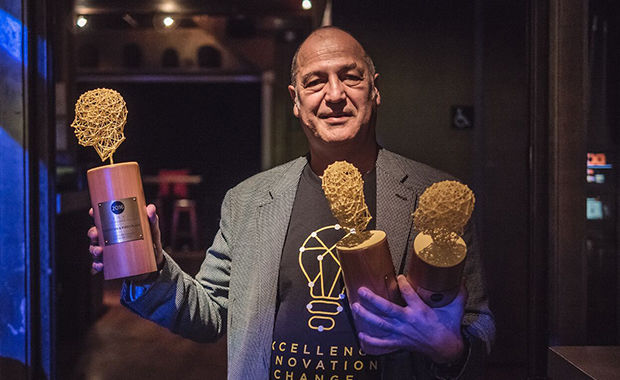Michael Bidu, Interface Health Founder, On How Accelerators Are Changing The Face Of Health Care In Canada
Research and Innovations A successful entrepreneur shares how he broke through in the health care industry and is now paving the way for future entrepreneurs.

Mediaplanet: Some have referred to you as a serial entrepreneur. What do you think of that title? Can you give us an idea of your past work that has led you to this point?
Michael Bidu: I was an “entrepreneur” (or at least a disrupter) since the age of seven. I’ve lost count of how many ventures I started in my youth. But since moving from Romania to Canada in 1994 I’ve started at least eight companies: four for-profits and four not-for-profits.
I’ve always been driven to learn new things and change old things, but I never imagined doing it in the health sector until I met Dr. Eric Topol, in April 2009. He is a cardiologist, a pioneering geneticist, and a world-class digital health researcher at the Scripps Translational Science Institute in San Diego. His keynote talk at the CTIA Wireless Convention in Las Vegas persuaded me — and others I’m sure — that technology can and will transform health care.
MP: How did Interface Health get started?
MB: Interface Health Society started as a moonshot project on February 26, 2015. My elevator pitch said simply: We are looking for people and companies in digital health who are frustrated by the time and money it takes to find solutions, customers, professional services, strategic partners, and investors. My proposal was: Interface Health, the global digital health accelerator. That proposal has evolved into an integrated multi-platform consisting of an annual global competition, a social network, an annual digital health summit, and a showcase.
MP: Can you provide a brief breakdown of what Interface Health does?
MB: Interface Health is dedicated to helping the world’s most talented entrepreneurs build, market and grow successful companies that will make a difference in Canadian and global health. We started with about 150 members in 2015. Now we help more than 5,000 members and 1,000 organizations from over 25 countries on 6 continents to discover new opportunities, to connect with each other, and to share ideas and innovations. And, we’re continuing to grow fast.
MP: Interface has been referred to as Canada’s first fully digital health accelerator. What does that mean exactly — is that what you were aiming for when you started Interface?
MB: As Canada’s first fully digital health accelerator, Interface Health is 100 percent focused on using creative disruption to accelerate digital health innovation. We do not focus on traditional multi-million dollar health IT, life sciences, medical devices or biotech but rather on smart, agile, cost-effective solutions that can be deployed in days, weeks or months, rather than years.
What we aimed from the start was to digitize and democratize medicine by empowering patients, consumers and health care providers with innovative new tools, services, technology, and software that will transform health and health care for the better.
MP: Where do you see digital health moving in the future?
MB: We are at the very beginning of yet another major transformation of humanity. What we have seen so far is the super-convergence of technologies from wireless sensors, nano bots and genomics to big data, video games, social networks for patients, virtual reality, and augmented reality. We have seen dramatic increases in computing power at reduced cost, the use of cloud storage, the rise of artificial intelligence, and machines replacing human tasks with dramatically better accuracy and for less money.
Digital health technologies will be able to do more, much, much faster for less money. That’s it.
